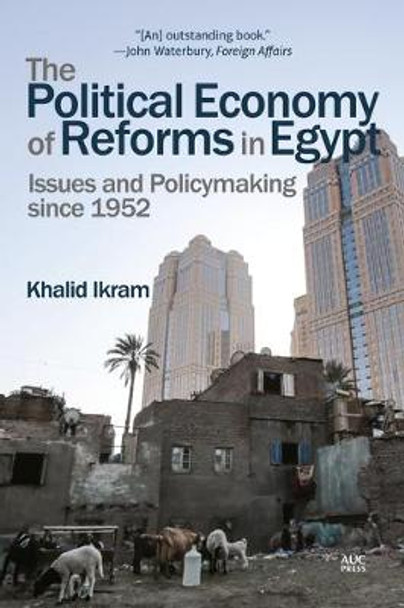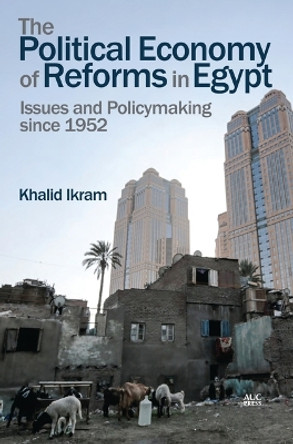Description
The definitive account of Egypt's economy from 1952 to the present day, new in paperback
About the Author
Khalid Ikram has been associated with Egypt's economic development for forty years, including as director of the World Bank's Egypt department. He has been a consultant to several institutions, including the World Bank, the Asian Development Bank, the Islamic Development Bank, USAID, OECD, UNDP and many other leading international and private institutions. He is the author of Egypt: Economic Management in a Period of Transition (1981) and The Egyptian Economy, 1952-2000: Performance, Policies, and Issues (2006).
Reviews
Khalid Ikram, a veteran scholar of Egypt's economic development, identifies chronic symptoms of Egypt's economic sluggishness . . . and situated them in the political history of Egypt. . . He does not present . . . insights as sweeping answers . . . , but instead frames them in a complex, but comprehensive web of analysis. * China International Strategy Review *
[B]rings a wealth of insights on the economic policy-making process, . . . a definitively valuable addition to the literature. * The Middle East Journal *
[E]asily the definitive account of Egypt's economy over the last six decades. * Patrick Clawson, Middle East Quarterly *
Khalid Ikram has done a rare thing: written a book about economics for the general public that is easy, useful and pleasant to read. * Ursula Lindsey, Al-Fanar Media *
This book is a gem. I am fascinated by the organized compass of the author, especially the interplay between the history, economics, and politics of modern Egypt. It is poised to be a classic read for students, researchers, and practitioners alike. * Tarek H. Selim, The American University in Cairo *
This outstanding book puts Egypt's economic history in the context of those of other developing countries, comparing it to such histories in East Asia and Latin America. Ikram skillfully weaves economic theory into his account of Egyptian economic policies over the last half century and assesses the role and effectiveness of foreign aid. * John Waterbury, Foreign Affairs *
This book is an outstanding work on several fronts. It is not only a book on the political economy of reforms in Egypt; rather it is the only book available that has tackled economic reforms in a comprehensive manner. . . . serves a wide audience, ranging from policymakers to academics to students and laymen. . . . an indispensable source. * Ahmed Ghoneim, Review of Economics and Political Science *
In this first-hand account of Egypt's economic development over the past fifty years, Khalid Ikram cuts straight through to the deep-rooted causes for the failure to improve productivity and growth. With breadth, precision and clarity, he traces the absence of real reform back to the low level of political legitimacy accorded to the regimes in place since the 1970s and to governance more focused on political survival than on the pursuit of long-term economic growth. * Ishac Diwan, Chaire Economie Monde Arabe, Paris Sciences et Lettres *
Written by someone who has had a ringside seat for decades, this fascinating volume is an important contribution not just to the economic history of Egypt, but to the political economy of aid and development, with a surprisingly frank perspective on the role of the Bretton Woods Institutions. * Ehtisham Ahmad, University of Bonn and London School of Economics *
This book is not only a major analytical contribution toward understanding the Egyptian political economy, but also provides a template for assessing policy challenges in other developing countries, particularly in the Middle East. * Zubair Iqbal, Middle East Institute, Washington DC *
This volume provides the cogent and deeply informed analysis that Egypt's development deserves but has rarely received. The Arab world's largest and most populous economy has consistently failed to realize its growth potential and Khalid Ikram explains why. A must read for all those with an interest in the political calculations that underlie the making and implementing of economic policies. * Shahid Yusuf, George Washington University School of Business in Washington DC *
[A] useful resource for understanding Egypt's economic predicaments. * The Developing Economies *
Book Information
ISBN 9789774169953
Author Khalid Ikram
Format Paperback
Page Count 448
Imprint The American University in Cairo Press
Publisher The American University in Cairo Press







